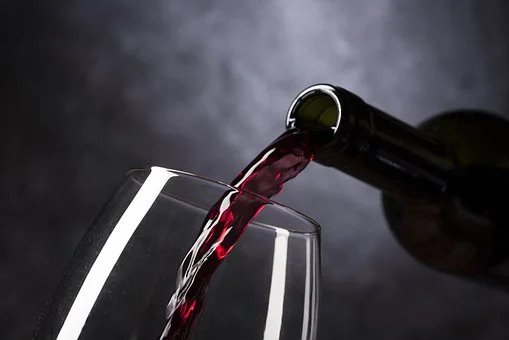Is Alcohol an Addictive Drug?

Yes—for the approximately 10 to 15 per cent of its users who are genetically predisposed to alcohol addiction.
Is alcohol a drug?
Alcohol is classified as a ‘depressant’. It slows down vital functions, causing slurred speech, erratic movements, distorted perceptions, and an inability to react promptly.
It also affects the mind like a drug that reduces people’s reasoning ability and distorts their judgment.
Although classified as a depressant, most people drink for the stimulant effect, such as a beer or a glass of wine taken to “loosen up.” But if a person consumes more than the body can handle, they experience alcohol’s depressant effect. They start to feel “silly” or lose coordination and control.
Alcohol overdose causes even more severe depressant effects (inability to feel pain, vomiting to rid the body of the poison, and finally unconsciousness or, worse, coma or death from a severe toxic overdose). These reactions depend on how much is consumed and how quickly.
Ethyl alcohol (ethanol, with the chemical formula C2H5OH), the only alcohol used in beverages, is produced by the fermentation of grains and fruits.
Alcohol risks
Imagine this sadistic experiment: A randomly selected group of men and women is forced to drink a bottle of whiskey every day for a year. At the end of the research period, the alcohol supply is abruptly cut off, and the subjects are observed for signs of physiological withdrawal, a clear indication of addiction to the drug. What happens to the individuals? Do they all become addicted?
While no one has ever conducted such an experiment with humans, researchers have subjected mice and rats to chronic drunkenness. The conclusions reached from this line of research are unequivocal: If you force rodents to drink enough alcohol over a long enough time, their central nervous systems will adapt to the drug, leading to increased tolerance for alcohol, physiological dependence on the drug, and symptoms such as tremors, insomnia, nausea, vomiting, anxiety, and seizures when it is withdrawn.
This is similar to the physical symptoms we observe when a client is under treatment and experiencing alcohol withdrawal symptoms.
Can experiments with rats and mice be applied to humans? Do they offer proof for the theory that people who drink too much risk becoming alcoholics or for the corollary theory, which holds that if you don’t drink excessively, you won’t become an alcoholic? Is physiological dependence on alcohol merely a process of drinking so much that your central nervous system adapts to the drug and eventually needs it to function normally?
The bitter truth
Here is a piece of the truth, and it is critically important for understanding the difference between alcoholics and nonalcoholics: For the great majority of human beings, you would indeed have to force-feed alcohol to them because they don’t like the taste, they don’t enjoy the feeling of being drunk and out of control, and they cannot drink large amounts because their bodies reject the drug by vomiting it back up again or passing out.
Given the unpleasant effects of intoxication (nausea, dizziness, loss of control, impaired judgment, and memory lapses) and the aftereffects of excessive drinking (headaches, hangovers, extreme thirst, guilt, shame, and self-loathing), the great majority of us choose not to drink excessively.
The wisdom of our bodies protects us; we want to feel good, not bad. We want to control our minds, maintain our health, and think of ourselves as kind, considerate, logical, and intelligent human beings. We also want to protect our reputation, considering the embarrassing behaviour we may indulge in while under the influence.
All these basic human needs are violated when we drink too much. No matter how good we feel after one or two drinks, most do not enjoy being intoxicated and out of control.
No matter how much fun we might have had the night before, the next day’s pain far outweighs the pleasure. Sensitive to alcohol’s immediate adverse effects and punishing aftereffects, we find it easy to moderate our drinking. If you tied us down and injected quarts of the stuff into our veins, maybe you could make addicts of us, but while we still had our wits about us, we would be kicking and screaming most of the way.
The desire to feel good
The desire to feel good is a natural human urge, familiar to drinkers and nondrinkers alike. Most of us are blessed with the ability to drink low doses of alcohol and feel the pleasures of the drug, yet we experience no physical or psychological need to drink more or more often.
However, for a minority of people (again, an estimated 10 to 15 per cent), alcohol does something different. Alcohol makes these drinkers feel so good that even if the taste is repulsive and the consequences are unpleasant, they want to repeat the experiment.
For these drinkers, the same internal restraints don’t apply. The next-day misery may be just as ferocious, and the shame and guilt may be just as unbearable, but the deep-seated desire to drink again overwhelms the logical mind.
As the person continues to drink, the body needs more and more of the drug to feel the same high—a condition called tolerance. As they begin to drink more, they often pave the way to destruction. They cannot imagine a social gathering without booze. Eventually, they cannot imagine a day without the stuff.
“The physical loathing for alcohol I have never got over,” Jack London wrote in his autobiographical memoir, John Barleycorn. “But I have conquered it. To this day, I conquer it every time I take a drink.”
Alcohol did something magical for Jack London, just as it does something earth-shaking for millions of drinkers worldwide. No matter how desperately the rational mind wants to say no, the answer is inevitable:” Yes, yes, yes.”
If you or a loved one is struggling with addiction, click www.hopetrustindia.com